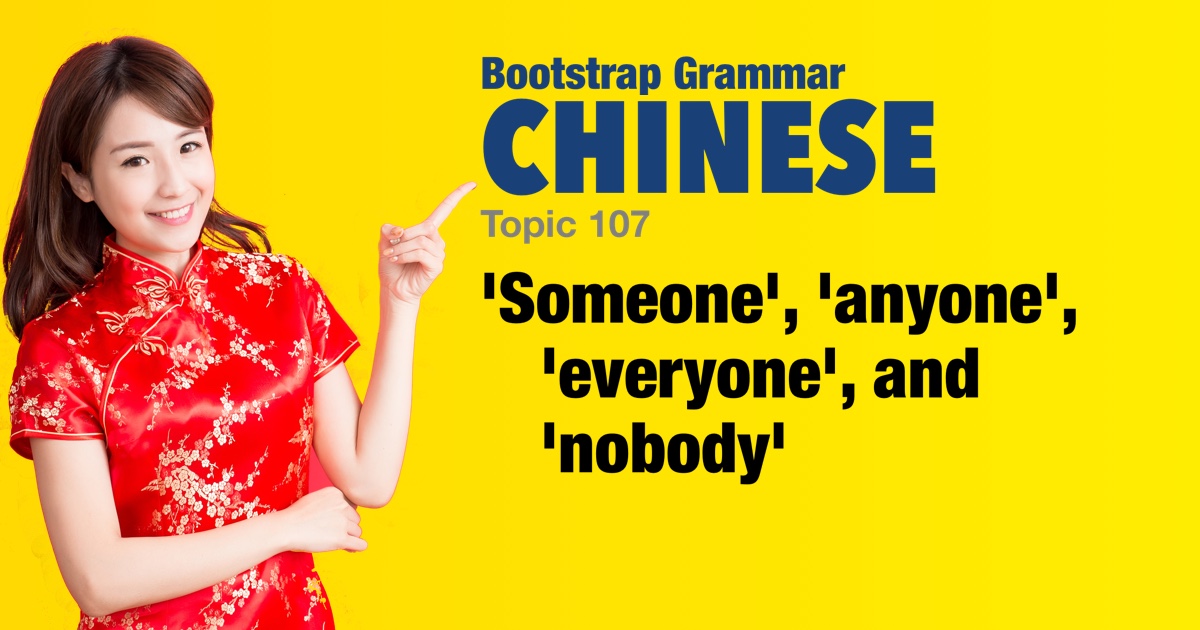Chinese grammar - 'Someone', 'anyone', 'everyone', and 'nobody' |
|||
|
|||
Common Chinese indeterminate pronouns include: • 谁 (shéi) (meaning 'who') can sometimes be used to mean 'someone', 'anyone who' or 'whoever' depending on context. • 谁都 (shéi dōu) can be used to mean 'everyone' or 'anyone' in positive or inclusive contexts. — In this context 都 (dōu) means 'all', 'both' or 'together'. • 谁也 (shéi yě) is often used to mean 'nobody' or 'no one' in negative contexts. — 也 (yě) means 'also' but when used with 谁 in a negative aspect means 'nobody'. Note that are several other common ways to say 'someone', nobody' etc. These will be covered in later topics. |
| Examples: | |
|
谁都可以来。
shéi dōu kěyǐ lái. Anyone can come. |
|
|
谁都知道这个故事。
shéi dōu zhīdào zhè ge gùshì. Everyone knows this story.
|
|
|
有谁在门口。
yǒu shéi zài ménkǒu. Who is at the door? |
|
|
谁也不知道答案。
shéi yě bù zhīdào dá'àn. Nobody knows the answer. |
|
|
谁也不知道。
shéi yě bù zhīdào. Nobody knows. |
|
|
谁都不来我的派对。
shéi dōu bù lái wǒ de pàiduì. No one comes to my party.
|
|
|
谁先到谁先吃。
shéi xiān dào shéi xiān chī. Whoever arrives first eats first.
|
|
|
谁知道答案请告诉我。
shéi zhīdào dá'àn qǐng gàosù wǒ. Anybody who knows the answer, please tell me. |
|
|
谁都会喜欢这场演出。
shéi dōu huì xǐhuān zhè chǎng yǎnchū. Everyone will enjoy this performance.
|
|
|
谁迟到了都不能参加会议。
shéi chídào le dōu bù néng cānjiā huìyì. Anyone who is late cannot attend the meeting. |
|
|
谁也没看见事故。
shéi yě méi kànjiàn shìgù. Nobody saw the accident. |
|
 |
|




